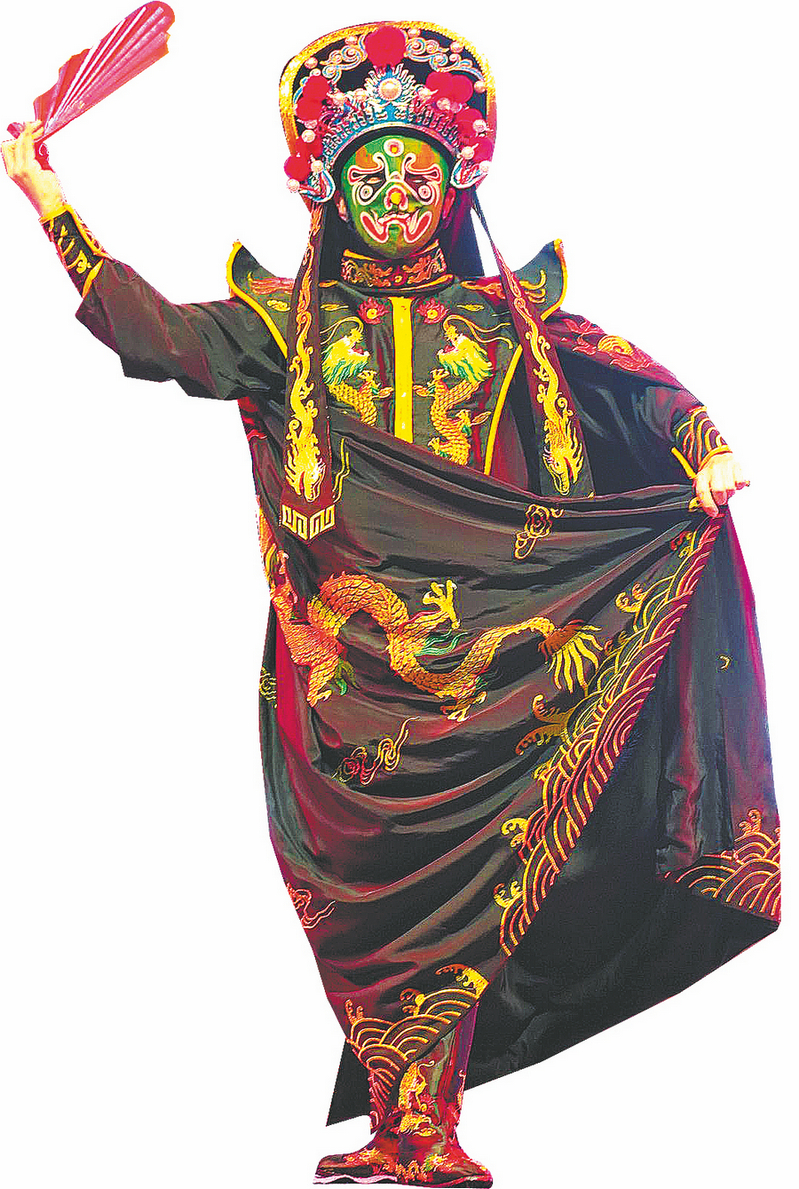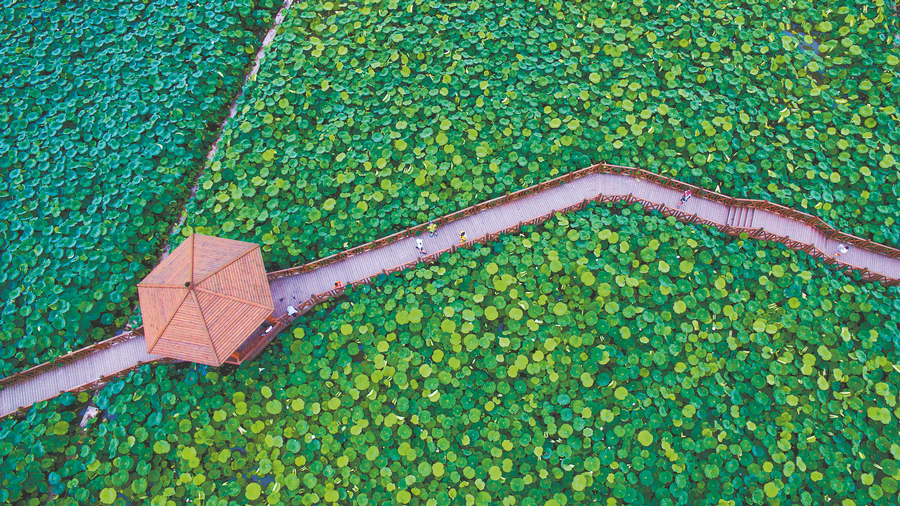City offers unique culture to event attendees


Science fiction fans to be wowed by wide variety of modern, ancient experiences.
Chengdu, capital of Sichuan province, will soon host this year's World Science Fiction Convention on Oct 18-22. The city, which abounds in cultural and natural heritage, may astonish science fiction enthusiasts and offer them inspiration.
Giant pandas are one of the best-known symbols of Chinese culture globally and also an adorable ambassador for Chengdu's image. The mascot of the 2023 convention, named Kormo, was designed based on a giant panda.
Chengdu, a city with a permanent population of more than 21 million and an area of more than 14,300 square kilometers, is home to both captive and wild giant pandas. The Chengdu Research Base of Giant Panda Breeding houses more than 230 pandas, and visitors can observe them from behind fences or glass windows. They can even see newly born panda cubs in the maternity ward.
Apart from giant pandas, other animals such as red pandas, swans and peacocks also inhabit the base. Chengdu is also an important habitat for wild giant pandas, with the fourth national giant panda survey indicating the existence of 73 wild giant pandas in the Chengdu area of the Giant Panda National Park.
In Chengdu, pandas are not only found in the panda base or in the wild but have also deeply integrated into the city's culture and life. The climbing panda sculpture on a building in downtown Chengdu has become one of its most famous landmarks. The fronts of some buses look like a panda's face and there are also panda-themed murals, shops selling panda toys, and even panda-themed restaurants.
The sunbird is another important cultural symbol of the city. The motif on the ears of the mascot Kormo is derived from Sun and Immortal Birds Gold Ornament unearthed from the Jinsha Ruins in Chengdu. The ornament is circular in shape with patterns arranged in two layers. Inside, there is a rotating sun with 12 rays. On the exterior, there are four flying birds.
In 2005, the ornament was selected from more than 1,000 designs as a symbol of Chinese cultural heritage.
When visiting Sichuan and Chengdu, one should not miss out on the local cuisine. Sichuan cuisine, listed as one of China's eight major culinary styles, has become popular domestically and internationally in recent years. On the list of the UNESCO City of Gastronomy, Chengdu is the birthplace of classic Sichuan dishes such as Kung Pao Chicken and Mapo Tofu, and is renowned for its spicy hotpot as well as its exquisite and diverse street snacks. In this city filled with food, one can delight in a satisfying meal at any random roadside eatery.

Eating in Chengdu's restaurants, one can often witness performances of the famous Sichuan Opera techniques such as face-changing and fire-spitting.
The charm of Chengdu goes far beyond pandas, Sichuan cuisine and the golden sun bird. As a city with over 2,300 years of urban development, Chengdu is home to world heritage sites such as Mount Qingcheng and the Dujiangyan irrigation project, as well as cultural landmarks like the Wuhou Shrine and the Du Fu Thatched Cottage. It also boasts intangible cultural heritage such as Sichuan Opera, lacquerware, and Sichuan brocade.
For visitors interested in experiencing the folk customs and scenes of old Chengdu, a visit to Kuanzhai Alleys is highly recommended. It encompasses large-scale preserved Qing Dynasty (1644-1911) streets and represents a blend of northern China's hutong (alley) culture and architectural styles. As an embodiment of leisurely city life and local market culture, Kuanzhai Alleys is known as the "spiritual home of Chengdu people".
For those who want to experience the hustle and bustle of Chengdu, Chunxi Road and Taikoo Li in the city center are the top choices. Visitors are also welcome to take a cup of tea in Chengdu's teahouses and learn about the city's mother river — Jinjiang River — by ship in the evening.





